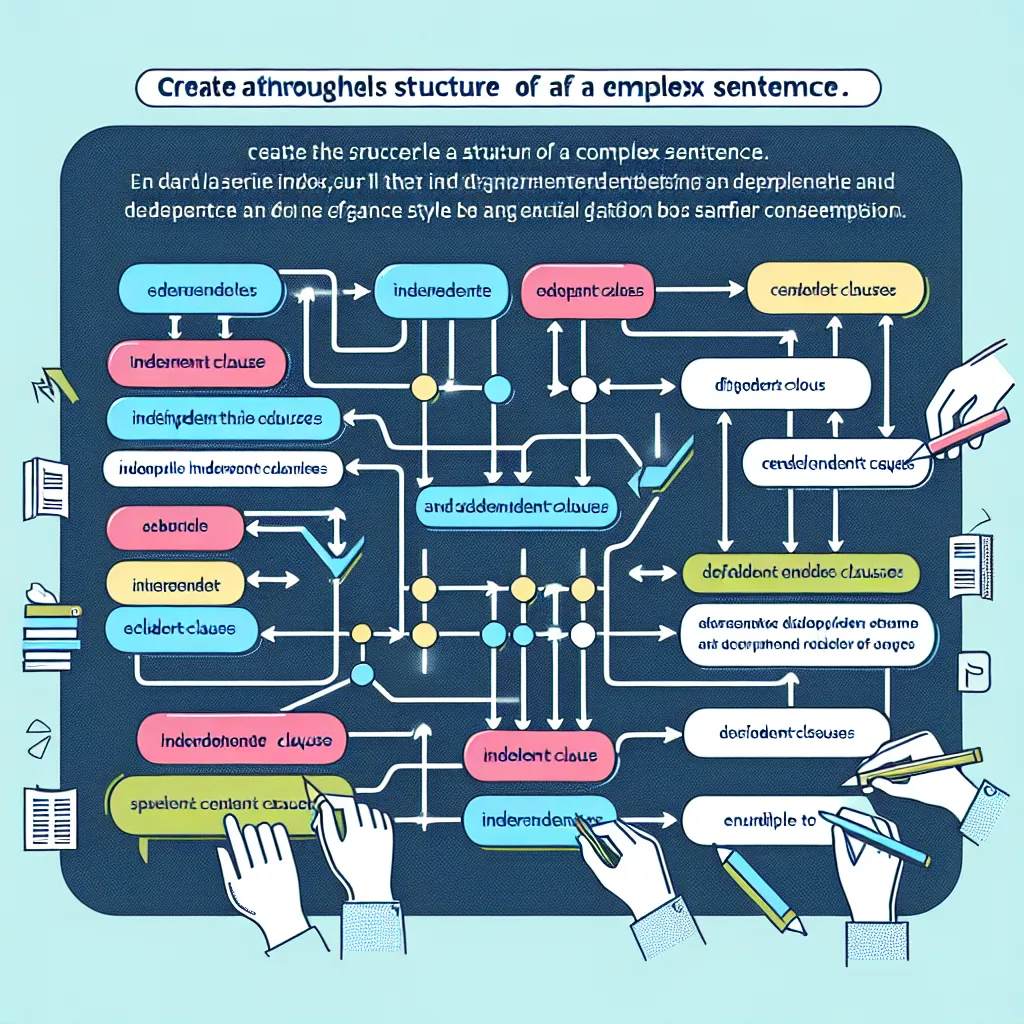Are you preparing for the Cambridge Exams and looking to enhance your writing skills? One of the key elements that can significantly boost your score is mastering the art of writing complex sentences. In this comprehensive guide, we’ll explore effective strategies and techniques to help you craft sophisticated and well-structured complex sentences for your Cambridge Writing tasks.
Understanding Complex Sentences in Cambridge Writing
Complex sentences are an essential component of advanced writing skills, and they play a crucial role in achieving high scores in Cambridge Exams. These sentences combine an independent clause with one or more dependent clauses, allowing you to express more nuanced ideas and demonstrate a higher level of language proficiency.
Why Are Complex Sentences Important?
- Demonstrate language proficiency: Complex sentences showcase your ability to use advanced grammatical structures.
- Enhance coherence: They help connect ideas more effectively, improving the overall flow of your writing.
- Increase variety: Using a mix of simple, compound, and complex sentences adds depth to your writing style.
- Boost your score: Examiners look for varied sentence structures as a marker of advanced writing skills.
 Complex Sentence Structure
Complex Sentence Structure
Strategies for Writing Effective Complex Sentences
1. Master Subordinating Conjunctions
Subordinating conjunctions are the building blocks of complex sentences. They connect the independent clause to the dependent clause. Some common subordinating conjunctions include:
- Although
- Because
- While
- Since
- If
- When
- Unless
Example: “Although it was raining heavily, we decided to go for a walk.”
2. Use Relative Pronouns
Relative pronouns help you create relative clauses, which add extra information to your sentences. Common relative pronouns include:
- Who
- Whom
- Which
- That
- Whose
Example: “The book, which I borrowed from the library, was incredibly insightful.”
3. Incorporate Participle Phrases
Participle phrases can add descriptive elements to your sentences, making them more complex and interesting.
Example: “Feeling exhausted after the long journey, we decided to rest at the hotel.”
4. Employ Appositives
Appositives are noun phrases that provide additional information about another noun in the sentence.
Example: “My sister, a talented musician, performed at the concert last night.”
Tips for Crafting Complex Sentences in Cambridge Writing
-
Start simple: Begin with basic complex sentences and gradually increase complexity as you become more comfortable.
-
Practice regularly: Incorporate complex sentences into your daily writing to make them feel more natural.
-
Read extensively: Exposure to well-written texts will help you internalize complex sentence structures.
-
Use transition words: Enhance coherence by using appropriate transition words between clauses.
-
Vary sentence beginnings: Start your sentences with different structures to add variety to your writing.
Common Pitfalls to Avoid
-
Overcomplicating: Don’t make your sentences so complex that they become difficult to understand.
-
Neglecting punctuation: Ensure proper use of commas, semicolons, and other punctuation marks in complex sentences.
-
Losing coherence: Make sure your complex sentences still convey clear and logical ideas.
-
Overusing a single type: Mix different types of complex sentences to maintain variety in your writing.
-
Forgetting balance: Use a combination of simple, compound, and complex sentences for a well-rounded writing style.
Practical Exercises to Improve Your Complex Sentence Writing
-
Sentence combining: Take two or three simple sentences and combine them into one complex sentence.
-
Expanding simple sentences: Start with a simple sentence and add dependent clauses to make it complex.
-
Identifying complex sentences: Analyze texts and highlight complex sentences, noting their structure.
-
Rewriting exercises: Take a paragraph with mostly simple sentences and rewrite it using more complex structures.
-
Timed writing practice: Set a timer and write a short essay, focusing on incorporating various complex sentences.
Next Steps in Your Cambridge Writing Journey
Now that you’ve learned the basics of writing complex sentences for Cambridge Writing, it’s time to put your skills into practice. Here are some suggestions for further improvement:
-
Analyze sample essays: Study high-scoring Cambridge Writing samples to see how complex sentences are used effectively.
-
Seek feedback: Ask a teacher or tutor to review your writing and provide specific feedback on your use of complex sentences.
-
Join a study group: Collaborate with other Cambridge exam candidates to practice and critique each other’s writing.
-
Take practice tests: Regularly complete timed writing tasks to simulate exam conditions and improve your complex sentence usage under pressure.
-
Explore advanced grammar resources: Dive deeper into complex grammatical structures to further enhance your writing skills.
Conclusion
Mastering the art of writing complex sentences is a crucial step in achieving success in Cambridge Writing tasks. By understanding the structure of complex sentences, practicing various techniques, and avoiding common pitfalls, you can significantly improve your writing skills and boost your exam scores. Remember, the key to success lies in consistent practice and a willingness to learn from your mistakes. Keep refining your skills, and you’ll soon find yourself crafting sophisticated and impressive complex sentences with ease.
[internal_links]
- How to Improve Your Cambridge Writing Skills
- Top Strategies for Cambridge Exam Preparation
- Common Mistakes to Avoid in Cambridge Writing Tasks
- Advanced Grammar Tips for Cambridge Exams
- Time Management Techniques for Cambridge Writing Tests
[/internal_links]




